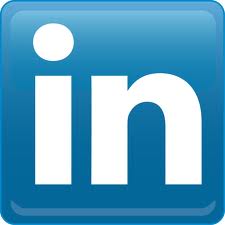MyChoice Description:
Have you ever been curious about the steps between bench discovery and translating that discovery into commercial innovation? Join this panel discussion with three UChicago faculty to learn how they, along with trainees in their labs, have turned their basic science discoveries into start-ups through the Polsky Center for Entrepreneurship. Erin Adams, Professor of Biochemistry and Molecular Biophysics, will moderate the panel, followed by a presentation by Dan Sachs, Executive Director of Deep Tech Ventures, who will provide insight into the business of accelerating companies to innovation.”
Summary:
Lev Becker (Ben May), Tao Pan (Biochemistry), and Stacy Lindau (OBGYN) spoke, moderated by Erin Adams (Biochemistry) and supported by Dan Sachs (Polsky Deep Tech Ventures) and Steve Gould (Surgery, Consulting director of Polsky Science Ventures)
EA: When did you start thinking about commercialization? What was the first step?
LB: First company was after his post-doc, and unrelated to his research — AI software to connect people in healthcare. From his research, ~7y ago: neutrophils release neutrophil elastase, which kills cancer cells specifically. Quickly reached out to Polsky to protect the IP — never too early!
SL: Sharing your discovery with the university is smart (ethically and business-wise), especially if you plan to stick around with them. Her funding demanded that she provide a sustainable business model – so she ran with it. Built a workflow and team to make it happen, and filed an LLC (In Delaware — always in Delaware).
TP: High-throughput sequencing for tRNA was cool, but nobody cared … UNTIL it was applied to the microbiome! Suddenly, Polsky was interested and helped a lot.
Took Booth night classes to learn more about how business/entrepreneurship works. Spend the effort to learn! Also, hired a post-doc specifically to lead those commercialization efforts
EA: What was exciting? Challenging? How much did you drive, vs your trainees?
LB: Exciting that his discovery had more value than just a publication, more potential. He let a student drive the project, who has now graduated and joined the company.
SL: just because you’re a smart prof doesn’t mean you understand the business side. Be humble; find a CEO that isn’t you. Motivation: she was frustrated by the disconnect between taking care of patients in the office, and it not fixing everything. –> CommunityRx lets her prescribe community resources to patients. Also engaged high school students.
TP: Must have great science. Then, think about starting a company. Stay flexible and be open to new ideas and applications — they pivoted from their first idea to new, more profitable iterations.
EA: And Challenges?
LB Benefitted from collaborating with an entrepreneur/lawyer. There’s a higher bar to convince people that your idea is worth a company (vs grants). Important to internalize failures along the way, internalize them and adapt your approach. Very difficult to get others behind your idea
SL: Idea was to create tech to digitally prescribe community, requiring EMR companies to give API access at scale. But that part was easy. Hard part was figuring out her own role and how to wear multiple hats – is she a prof, or is she an entrepreneur. Worried that her history as a scientist would be seen as less if she took an entrepreneurial path. Now, the entrepreneurship feeds back to her science and helps motivate each other.
Women-owned startups only got 1.9% of VC funds in 2022; big barrier
TP Getting funding is harder (success %), but each individual pitch takes a lot less work than a grant. Funding climate can change a lot, very quickly: just need one success to make things work. Business may ask for different data/info that you may not have needed for your pubs
EA: How did you involve trainees in the process?
LB Never start a project with the intent to start a company; trainees run projects to answer questions. Once the projects mature, entrepreneurial opportunities become available. Trainees are involved to prepare patent applications and are co-inventors.
SL Employed MAPS CORPS students, as well as PhDs from her lab, to get involved.
Dan – Deep Tech Ventures
You can be an entrepreneur, and keep your day job. UChicago has invested lots of energy into making it easy for us to translate our research.
Accelerators, programs, and funding mechanisms run by Polsky to help us.
Data Science and AI accelerator is launching now – cross functionality makes it easy for lots of different people to get involved.
Life Sciences and Biotech accelerator will launch in 2024.Now, “compass deep tech accelerator” serves BSD well. Lots of programs are in place to learn about all elements. Other programs to pair people.
Funding: George Shultz Innovation Fund, up to 250k for early startups.
Others, form a team with other students and see it through to series A.
Prototype for Success, I-Corps, Polsky Science Innovation Fellows, Innovation Fund Associates
Lots of partnerships – large companies, venture capital, national labs ….
Mission-driven: University is very supportive of building a broad base of entrepreneurial resources
Pitching early stage ideas: Collabratorium; 5pm on Tuesday Feb 28th.
EA: How does an idea tip from a good idea to one that should be commercialized?
“Is there IP around this discovery?” is there something that you can protect?
“Grow by pull, not push” – people were asking her about her program, showing that there was interest in making it available more broadly. *Note: Software is often not patentable. **Also note: do not confuse no IP for no value
“Have a Deep understanding of why your idea is scientifically valuable”


